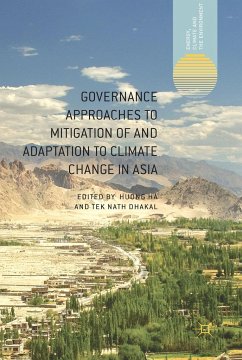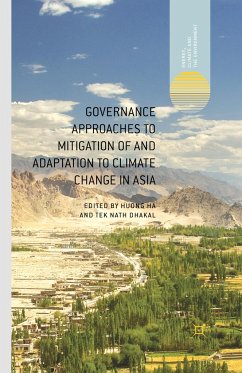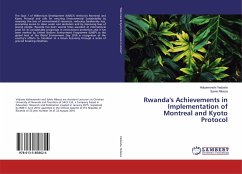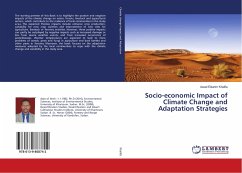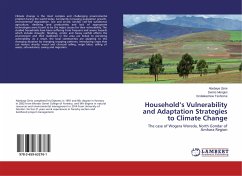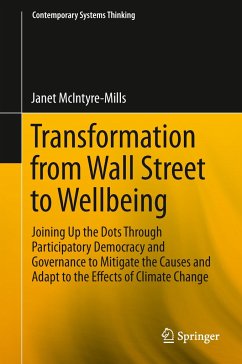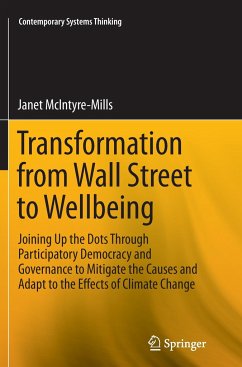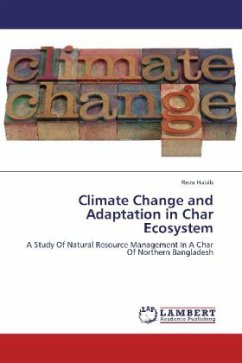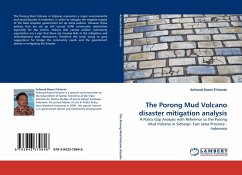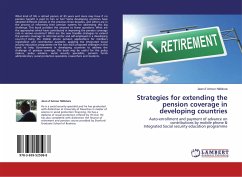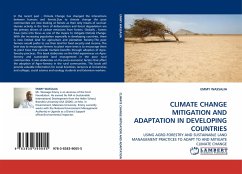
CLIMATE CHANGE MITIGATION AND ADAPTATION IN DEVELOPING COUNTRIES
USING AGRO-FORESTRY AND SUSTAINABLE LAND MANAGEMENT PRACTICES TO ADAPT TO AND MITIGATE CLIMATE CHANGE
Versandkostenfrei!
Versandfertig in 6-10 Tagen
39,99 €
inkl. MwSt.

PAYBACK Punkte
20 °P sammeln!
In the recent past , Climate Change has changed the interactions between humans and forests.Due to climate change the poor communities are now looking at forests as their only means of survival. Human activity in the form of deforestation and forest degradation are the primary drivers of carbon emissions from forests. Globally , forests have come into focus as one of the means to mitigate Climate Change. With the increasing population especially in developing countries, there is now limited land for agriculture and plantation forestry.The poor farmers would prefer to use their land for food se...
In the recent past , Climate Change has changed the interactions between humans and forests.Due to climate change the poor communities are now looking at forests as their only means of survival. Human activity in the form of deforestation and forest degradation are the primary drivers of carbon emissions from forests. Globally , forests have come into focus as one of the means to mitigate Climate Change. With the increasing population especially in developing countries, there is now limited land for agriculture and plantation forestry.The poor farmers would prefer to use their land for food security and income. The best way to encourage farmers to plant more trees is to encourage them to plant trees that provide multiple benefits through adoption of Agro-forestry practices. This book elaborates on the field experiences on Agro-forestry and sustainable land management in the poor rural communities. It also elaborates on the socio-economic factors that affect the adoption of Agro-forestry in the rural communities. This book will provide valuable information for social Scientists, lecturers at Universities and colleges, social science and ecology students and Extension workers.



